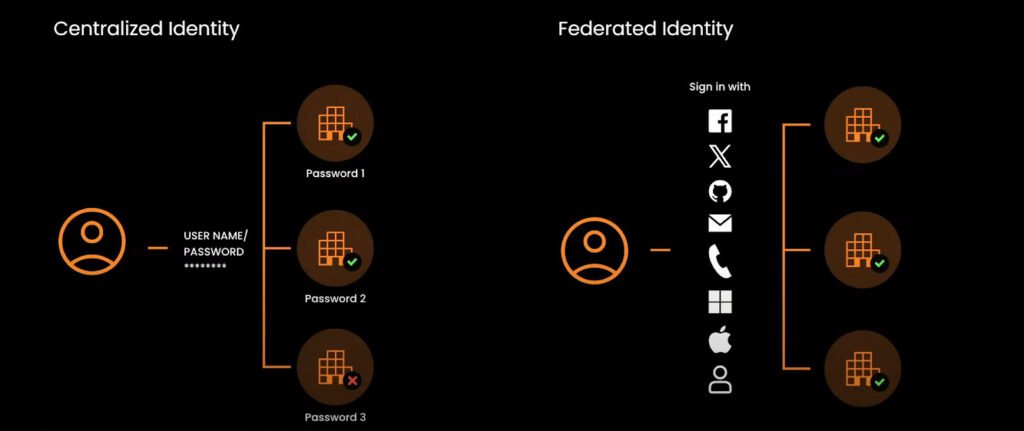MicroStrategy, the leading corporate holder of Bitcoin, has revealed plans to launch a decentralized identity solution on the Bitcoin network. The marks a significant move towards leveraging Bitcoin blockchain beyond traditional financial applications.
MicroStrategy Orange: Decentralized Identity
During the MicroStrategy World conference in Las Vegas on May 1, Michael Saylor, the co-founder and Executive Chairman of the firm, introduced MicroStrategy Orange, a decentralized identity protocol.
This new protocol is open-source and operates directly on the Bitcoin network, avoiding reliance on sidechains. It boasts the capability to process up to 10,000 decentralized identifiers (DIDs) in a single Bitcoin transaction.
These DIDs provide pseudonymity, similar to real-world identities not being directly linked to Bitcoin addresses and transactions.
As per the unofficial draft document of the solution shared by MicroStrategy on GitHub, the protocol utilizes Ordinal-based inscriptions to store and retrieve information, aiming to deliver trustless, tamper-proof, and long-lasting decentralized identities using the public Bitcoin blockchain.
Comprehensive Suite of Tools
Comprising Orange Service, Orange SDK, and Orange Applications, MicroStrategy Orange offers a comprehensive suite of tools for users.
Cezary Raczko, MicroStrategy’s executive vice president of engineering, emphasized the versatility of MicroStrategy Orange explaining that the software development kit simplifies integration into various applications and systems. He stated:
“At the heart of it is a service cloud, hosted, that allows you to issue those identifiers to your users in your organization. It also allows you to deploy prepackaged out-of-the-box applications that run on the MicroStrategy Orange platform.”
Notably, Orange Service allows the issuance of DIDs and deployment of applications, while Orange SDK and Orange Applications enable customization and integration of specific services on mobile and desktop devices.
One such application developed by MicroStrategy is “Orange For Outlook,” which integrates digital signatures into emails, ensuring the authenticity of the sender’s identity.
The onboarding process involves accepting an invitation email signed by MicroStrategy’s DID, leading to the generation of a unique DID and public-private key pair for the user.
“We’re going to send a decentralized identifier and the public key to the Orange server to be inscribed on the Bitcoin Blockchain, [and] from that point onward, you are ready to start sending Orange-signed messages or emails,” Raczko explained.
Expansion Plans
MicroStrategy envisions extending the use of MicroStrategy Orange beyond emails to other messaging platforms, social media networks, and applications in e-commerce, enterprise, and fintech sectors.
The announcement suggested the possibility of displaying an “orange check” for verified users across platforms, enhancing trust and security.
Saylor highlighted:
“Wouldn’t it be great if instead of a blue check, green check, etc., there was an orange check that was a global standard? With MicroStrategy, maybe we could approach this idea of decentralized identity, with Bitcoin.”

The announcement of MicroStrategy Orange comes along with the company’s first-quarter financial report, which showed a $53.1 million net loss. However, this report did not account for the impressive 65% increase in the market value of MicroStrategy’s 214,400 bitcoin holding, worth $15.2 billion at the time.
MicroStrategy’s venture into decentralized identity solutions reflects a broader trend of companies exploring bitcoin’s applications beyond investments.










